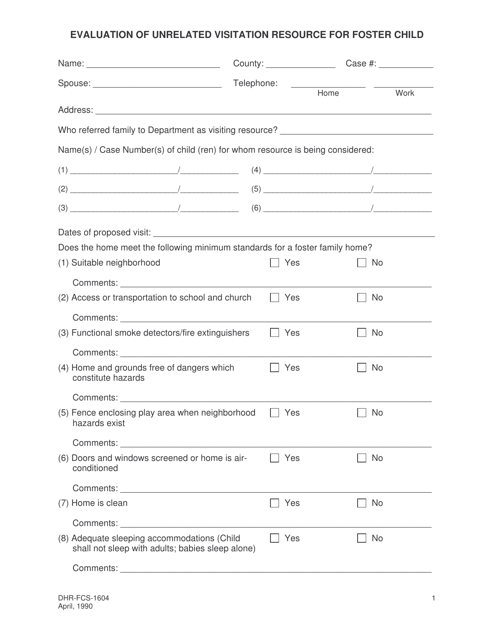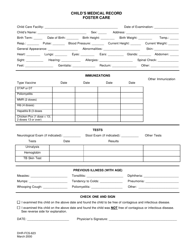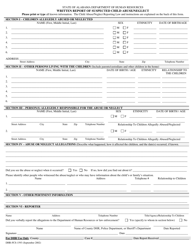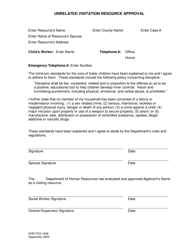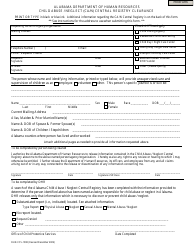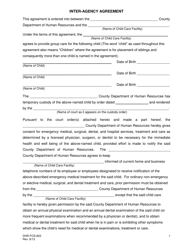Form DHR-FCS-1604 Evaluation of Unrelated Visitation Resource for Foster Child - Alabama
What Is Form DHR-FCS-1604?
This is a legal form that was released by the Alabama Department of Human Resources - a government authority operating within Alabama. Check the official instructions before completing and submitting the form.
FAQ
Q: What is Form DHR-FCS-1604?
A: Form DHR-FCS-1604 is an evaluation form used in Alabama to assess unrelated visitation resources for foster children.
Q: What is the purpose of Form DHR-FCS-1604?
A: The purpose of Form DHR-FCS-1604 is to evaluate and assess the suitability of unrelated individuals as visitation resources for foster children.
Q: Who uses Form DHR-FCS-1604?
A: Form DHR-FCS-1604 is used by the Alabama Department of Human Resources and foster care agencies to evaluate potential unrelated visitation resources.
Q: What does the evaluation process involve?
A: The evaluation process involves completing Form DHR-FCS-1604, which includes gathering information about the unrelated visitation resource's background, living situation, and ability to meet the needs of the foster child.
Q: What factors are considered during the evaluation?
A: The evaluation considers factors such as the visitation resource's criminal history, physical and mental health, housing adequacy, financial stability, and ability to provide a safe and nurturing environment for the foster child.
Q: Can anyone become an unrelated visitation resource for a foster child?
A: No, unrelated visitation resources must meet certain criteria and pass the evaluation process conducted using Form DHR-FCS-1604 to ensure the safety and well-being of the foster child.
Q: Are there any fees associated with the evaluation process?
A: There may be fees associated with the evaluation process, such as background check fees or home study fees. These fees vary depending on the agency conducting the evaluation.
Q: What happens after the evaluation?
A: After the evaluation, a decision is made regarding the suitability of the unrelated visitation resource. If approved, the resource may be allowed to have visitation rights with the foster child.
Q: Can visitation resources provide long-term care for foster children?
A: No, visitation resources are only approved for providing visitation rights and are not eligible for long-term care or placement of a foster child in their home.
Form Details:
- Released on April 1, 1990;
- The latest edition provided by the Alabama Department of Human Resources;
- Easy to use and ready to print;
- Quick to customize;
- Compatible with most PDF-viewing applications;
- Fill out the form in our online filing application.
Download a printable version of Form DHR-FCS-1604 by clicking the link below or browse more documents and templates provided by the Alabama Department of Human Resources.
